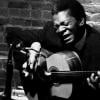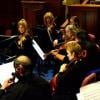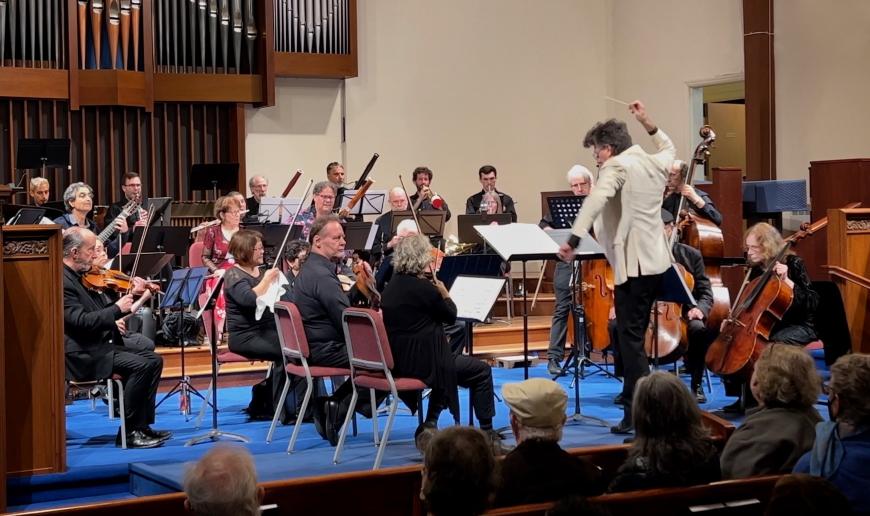
The noble experiment that launched ECHO Chamber Orchestra continues to deliver the goods. Assembled in 2015 under the baton of Argentine-born conductor Daniel Canosa, the Marin-based ensemble has spent the past decade presenting well-conceived programs that push beyond the usual suspects, but the group’s second presentation since returning from the pandemic hiatus, “A Musical Promenade 2,” represented a graceful creative leap.
With its focus on living composers, Saturday’s concert at San Anselmo’s First Presbyterian Church, the orchestra’s home base, was playful and probing, earthy and refreshingly rapturous. Opening in the church’s courtyard, the evening started with a diverse array of small-group pieces, including Francis Poulenc’s serpentine Sonata for Two Clarinets by the well-matched duo of Robert Beard and Matt Rupert and flutist Amanda Hahn’s sensuously charged rendition of Astor Piazzolla’s Tango Etude No. 2. With pianist Rebecca Hass’s original choro, a brief and spritely piece that evoked the Brazilian style’s urbane roots, the program’s focus pivoted to works by composers present at the event.
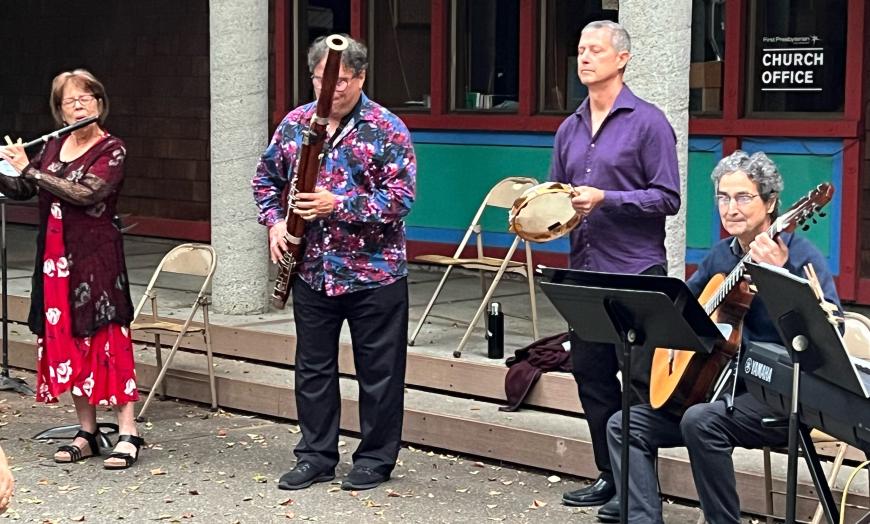
Concerts in the time of COVID have conditioned audiences to expect last-minute personnel changes, but “Promenade 2” offered several other unexpected developments. Hass’s piece wasn’t listed in the program, and violinist Irene Sazer’s premiere of her new choro “Hot Hot” changed up the billed instrumentation. A virtuosic instrumental idiom that emerged in late-19th-century Rio de Janeiro, choro was among the first Afro-European musical styles to develop in the Americas, and Sazer’s tune, completed just in time for the show, reveled in the humor and rhythmic agility required to make choro sing (with a big assist from Brian Rice on the tambourine-like pandeiro).
Featuring Rice, flutist Jane Lenoir, guitarist Ricardo Peixoto, and Berkeley-reared bassoonist Paul Hanson (stepping in for reed player Harvey Wainapel), the Berkeley Choro Ensemble (BCE) closed the outdoor program with several classic tunes by definitive choro composers Jacob do Bandolim and Pixinguinha. The group’s rhythmic control was enthralling, as were Lenoir’s unison lines with Hanson, a singular musician whose work replacing Wainapel’s liquid-toned clarinet felt like Gene Kelly taking over for Fred Astaire.
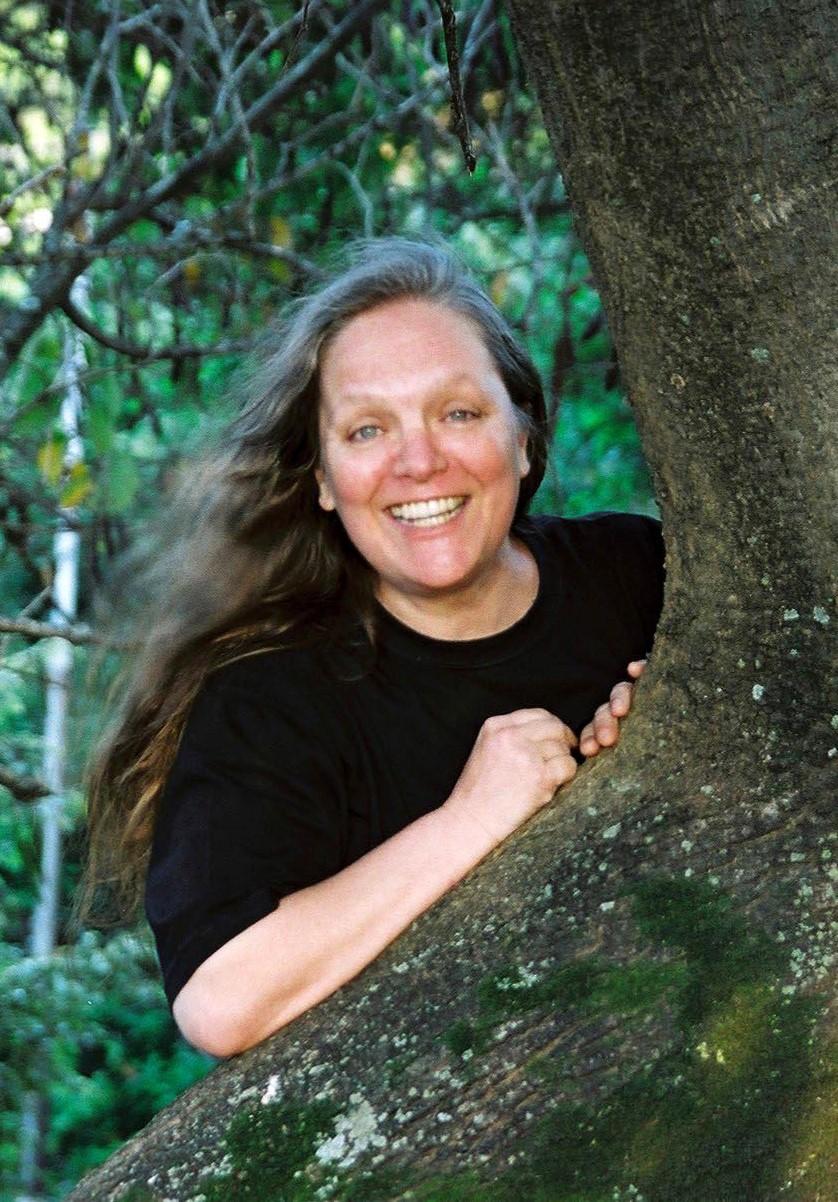
Moving into the sanctuary for the second half, the program focused on the music of the great São Paulo composer Léa Freire, with the BCE seamlessly integrating into a 26-piece edition of the ECHO Chamber Orchestra (with Sazer serving as concertmaster). The ensemble performed the Freire works in June at the Freight & Salvage as part of the Berkeley Festival of Choro, and the reprise was consistently revelatory. With vivid and uncluttered orchestral arrangements by Felipe Senna, the pieces explored an array of territory, from the tidal surge of “Maré” and the alluring character study of “Isabella” to the controlled, accelerating chaos of “Mamulengo” (featuring the composer herself on piano).
Part of what made the programming so pleasurable was hearing the naked architecture and typical flow of the choro form before experiencing the orchestral arrangements. Like her colleague Guinga, another superlatively sophisticated composer who draws on an expansive array of Brazilian styles, jazz, and European classical music, Freire has connected with a community of American musicians, centering on the Berkeley festival and California Brazil Camp in Cazadero, which suggests we’ll be seeing a good deal more of her in the coming years.
The concert closed with Brazilian Choro Suite by Peixoto and Wainapel, a piece that ECHO premiered in 2017. The ensemble’s familiarity with the three-movement work was evident, as Canosa’s loose but confident control of the transitions and dynamics allowed Peixoto’s guitar to surface at key moments. There aren’t many orchestras that could meld so effectively with a choro combo, and with the momentum generated by “Promenade 2,” there’s every reason to hope for future sojourns into these verdant Brazilian landscapes.



